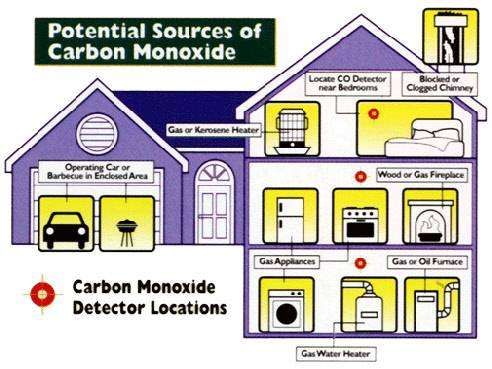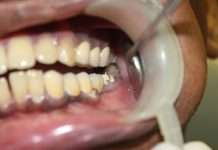Carbon monoxide is a flammable gas that’s odorless and colorless, which makes it difficult to detect in the event that a leak occurs in your home. This gas is produced when burning, wood, propane, gasoline, and other fuel types. Within industrial settings, carbon monoxide is a common hazard that many different types of workers can become exposed to. In the event that the heating equipment in your home becomes damaged or the vents are blocked, carbon monoxide buildup could occur in your home, which can be very dangerous. In order to avoid CO poisoning, it’s essential that you understand the dangers of carbon monoxide. In this article, you will know how to Avoid Carbon Monoxide Poisoning.
Table of Contents
How Is Carbon Monoxide Harmful?
Carbon monoxide is harmful because breathing it in lessens the amount of oxygen in your blood, which means that your brain, heart, and other organs won’t get the oxygen that they need to function properly. Breathing in a large amount of carbon monoxide can create issues in minutes and may cause you to lose consciousness and even suffocate. Along with feeling a general tightness around the chest, some of the main symptoms associated with carbon monoxide poisoning include:
- Fatigue
- Headaches
- Nausea
- Dizziness
- Drowsiness
In the event that your exposure to carbon monoxide is prolonged, some of the additional symptoms that you could suffer from extend to confusion, vomiting, muscle weakness, a loss of consciousness, and collapse. Keep in mind that symptoms can vary significantly from one person to another. Certain individuals are also more susceptible to carbon monoxide poisoning than others, which include elderly people, younger children, smokers, and individuals with heart or lung disease.
If carbon monoxide poisoning is caught in time, it’s possible to reverse the effects without long-term damage to your health. However, it doesn’t take much for permanent damage to occur with the heart and brain because of how much oxygen they require to function.
How to Keep Yourself Safe or Your Household Appliances Up to Date
If you want to keep yourself and your family members from being poisoned by natural gas carbon monoxide, there are several tips and guidelines that you should follow. First of all, it’s highly recommended that you install carbon monoxide detectors throughout your home. Make sure that these detectors are installed nearby each sleeping area of the home. You should also check the batteries a couple times each year so that you can be certain they’re working properly.
If a garage is attached to your home, never leave your car running when the garage door is closed. This heightens the possibility that carbon monoxide will seep into your home. It’s also recommended that you use your gas appliances for their intended purposes only. For instance, a gas oven should never be turned on when you want to heat your home. Any fuel-burning engine or appliance must have proper ventilation. These appliances include water heaters, furnaces, charcoal grills, wood-burning stoves, and fireplaces.
In the event that a fireplace is installed in your home, clean the flue and chimney once per year. If you follow these guidelines, you should be able to keep yourself safe and protect any family members in your home. Because of how dangerous and harmful carbon monoxide can be, it’s important that you adhere to at least some of these suggestions. Carbon monoxide detectors alone can significantly decrease the possibility of carbon monoxide poisoning.
Additional Facts About Carbon Monoxide
If you suspect that you’re suffering from carbon monoxide poisoning, the first thing that you should do is get some fresh air immediately, after which 911 should be dialed as quickly as possible. Even opening a window should provide enough oxygen to reduce the buildup of carbon monoxide. Once you arrive at a hospital and are being treated for carbon monoxide poisoning, your treatment regimen will likely involve breathing pure oxygen via a ventilator and undergoing hyperbaric oxygen therapy until your symptoms subside.
Now that you know about the many dangers of carbon monoxide, you should be able to avoid carbon monoxide poisoning. Even though it can be difficult to detect a carbon monoxide leak, the aforementioned tips should make it easier for you.


















